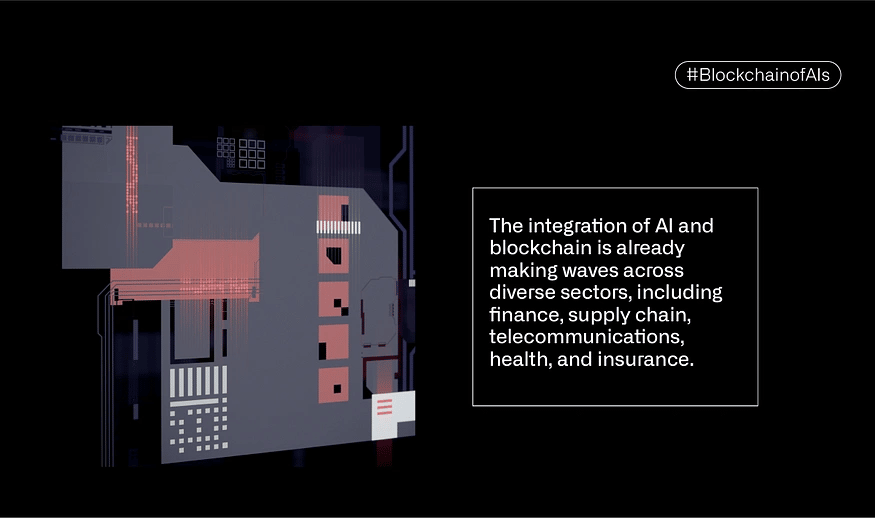Subscribe to wiki
Share wiki
Bookmark
DeFAI-DDD
DeFAI-DDD
Here is a draft wiki entry for DeFAI:
DeFAI (Decentralized Finance + Artificial Intelligence)
DeFAI refers to the integration of artificial intelligence (AI) technologies with decentralized finance (DeFi) applications and protocols. This emerging field aims to leverage AI capabilities to enhance and automate various aspects of DeFi, making decentralized financial services more efficient, accessible, and user-friendly.
Overview
DeFAI combines the decentralized, trustless nature of blockchain-based financial applications with the data processing and decision-making capabilities of AI. The goal is to create more intelligent, adaptive, and autonomous DeFi systems that can analyze market trends, optimize trading strategies, manage risk, and provide personalized financial services to users.
Some key aspects of DeFAI include:
- AI-powered trading bots and portfolio management
- Automated yield farming and liquidity provision
- Intelligent risk assessment and fraud detection
- Natural language interfaces for interacting with DeFi protocols
- Predictive analytics for market trends and asset prices
- Personalized financial advice and product recommendations
By integrating AI, DeFAI aims to address some of the key challenges in DeFi, such as complexity, inefficiency, and information overload. AI agents can process vast amounts of on-chain and off-chain data to provide actionable insights and automate complex DeFi operations [1].
Key Features and Components
AI Agents
AI agents are at the core of DeFAI systems. These autonomous software entities use machine learning algorithms to perform various tasks:
- Data gathering: Collecting relevant information from blockchain networks, exchanges, news sources, and social media
- Analysis: Processing and interpreting large datasets to identify patterns and generate insights
- Decision-making: Determining optimal strategies for trading, lending, borrowing, and other DeFi activities
- Execution: Automatically interacting with smart contracts and DeFi protocols to implement decisions
Multi-Chain Portfolio Aggregation
DeFAI platforms often provide unified dashboards that aggregate users' assets and activities across multiple blockchain networks. This gives users a comprehensive view of their DeFi portfolio and simplifies management of cross-chain assets [2].
AI-Driven Recommendations
By analyzing market data and user behavior, DeFAI systems can offer personalized investment recommendations, risk assessments, and financial advice tailored to each user's goals and risk tolerance.
Autonomous Investing
Some DeFAI platforms allow users to delegate control of their assets to AI agents, which can automatically execute trades, provide liquidity, and optimize yields based on predefined parameters and market conditions.
Smart Alerts and Notifications
DeFAI systems can monitor market conditions and user portfolios in real-time, sending automated alerts about important events, price movements, or potential risks.
Potential Impact on DeFi
The integration of AI into DeFi has the potential to significantly transform the landscape:
- Improved accessibility: By simplifying complex DeFi operations, DeFAI could make decentralized finance more accessible to mainstream users.
- Enhanced efficiency: AI-driven automation can optimize trading, lending, and other DeFi activities, potentially leading to better returns for users.
- Reduced risk: Advanced analytics and fraud detection capabilities could help mitigate some of the risks associated with DeFi.
- Innovation in financial products: AI could enable the creation of more sophisticated and personalized DeFi products and services.
However, the adoption of DeFAI also raises important questions about transparency, accountability, and the potential for AI bias in financial decision-making.
Challenges and Considerations
While DeFAI offers exciting possibilities, it also faces several challenges:
- Data quality and availability: AI models require high-quality, comprehensive data to function effectively.
- Regulatory uncertainty: The use of AI in finance may face regulatory scrutiny, particularly regarding algorithmic decision-making.
- Security concerns: Integrating AI with DeFi protocols introduces new potential attack vectors that must be addressed.
- Transparency and explainability: Ensuring that AI-driven decisions in DeFi are transparent and explainable to users and regulators.
Conclusion
DeFAI represents a significant evolution in the world of decentralized finance, combining the innovative potential of AI with the decentralized, permissionless nature of blockchain technology. As this field continues to develop, it has the potential to make DeFi more accessible, efficient, and powerful, potentially driving wider adoption of decentralized financial services.
However, the success of DeFAI will depend on addressing key challenges related to data quality, security, regulatory compliance, and user trust. As the technology matures, it will be crucial to strike a balance between innovation and responsible development to ensure that DeFAI truly benefits users and contributes positively to the broader financial ecosystem.
See something wrong?
